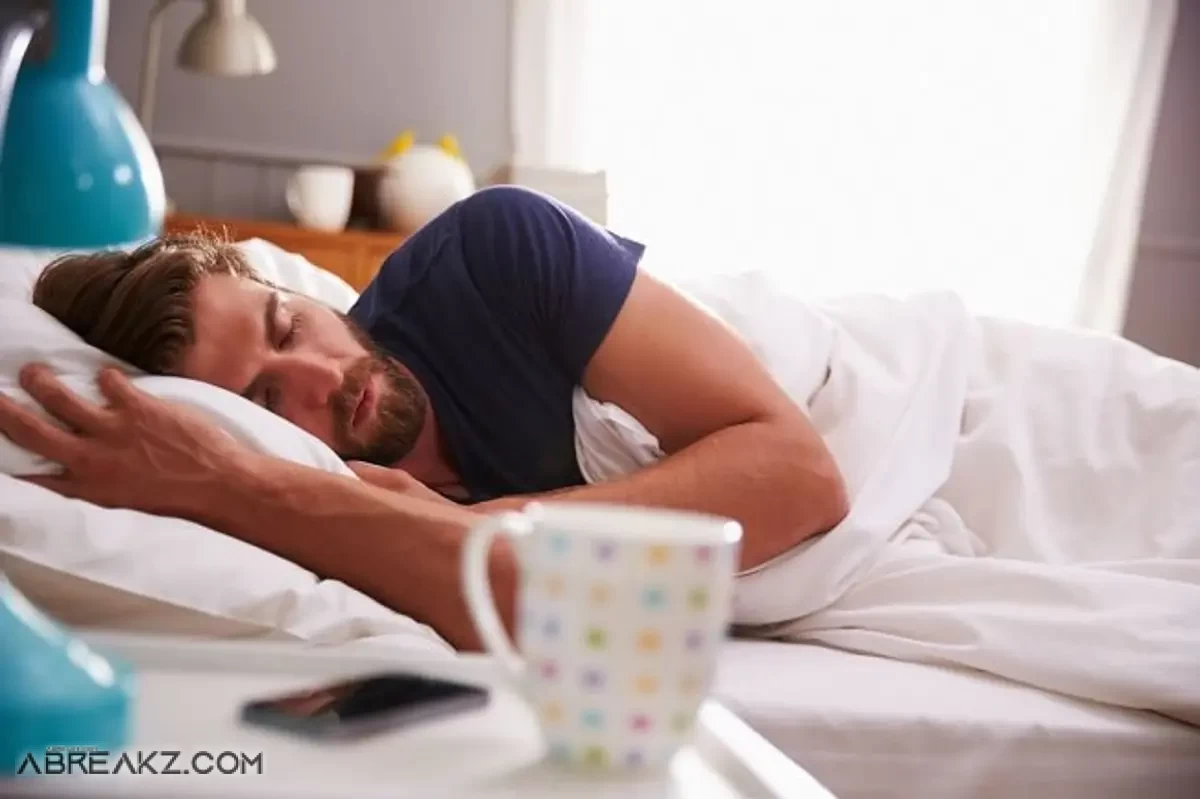Sleeping position is very important as it may cause health problems and may help get rid of some pain, sleeping with a pillow under your back may help relieve back pain, but it may also exacerbate the symptoms of sleep apnea, sleeping on your side may be better in case of apnea While you sleep, you may find that it hurts your spine.
If you have a heart condition, you may want to avoid sleeping on your left side, and it's thought that sleeping on that side may alter the heart's electrical activity, and it's still not clear if this effect is big enough to be a concern, according to a report by healthline.

Is sleeping on your left side bad for your heart?
There is little research looking at the effects of sleeping positions on heart health. However, there is some evidence that sleeping on your left side may increase stress on your heart. For the first time, researchers noticed that side sleeping causes marked changes in the electrical activity of the heart measured by an electrocardiogram. heart rate (ECG) and researchers found the effect was more pronounced when participants were lying on their left side.
In another study, researchers also found that sleeping on the left side was associated with changes in ECG readings in healthy participants and using a type of imaging technique called vector ECG, they found that sleeping on the left side causes changes in electrical activity that are attributed to this movement of the heart.
When the participants slept on their right side, virtually no change in ECG activity was found. The researchers found that in this position, the heart was held in place by a thin layer of tissue between the lungs called the mediastinum.
Although lying on your left side may alter the electrical activity of your heart, there is no evidence that it increases your risk of heart disease if you're not already injured.

How about sleeping on your right side?
Some sleep experts believe that sleeping on your right side may put pressure on the vena cava. This is the vein that feeds the right side of your heart. However, at this time there is no evidence that sleeping on your right side increases the risk of heart failure, and it appears to be safe.
A study has found that the majority of participants with a heart muscle disease called sequential dilated cardiomyopathy prefer sleeping on their right side rather than their left side.
The best sleeping positions for your heart
If you have heart failure, you should talk to your doctor about any sleeping positions you should avoid. Sleeping on your right side may be the best option for people with heart failure.
Benefits of sleeping on the right side
A person needs to sleep for about 8 hours a day to replenish energy, and even if he sleeps for this period, the body may not get the rest and the benefits that sleep provides if the way of sleeping is wrong, the Prophet explained to us since ancient times that the best way to sleep is to be on the right side It is preferable to place the right hand under the right cheek as well, and many recent studies have been conducted that have proven the benefit of sleeping in this way, so it is to follow the Sunnah to sleep as the Prophet Muhammad commanded us to achieve the best benefit of sleep.
- Gives the body comfort and stillness.
The left lung is smaller than the right lung, so sleeping on the right incision reduces the load on the body and lung. Sleeping on the right side relieves the weight on the head, and relieves the pressure on the entire body.
The liver in this case is more stable.
The stomach is in the most comfortable position for her, and it becomes easier for her to get the digested food out. Sleeping in this way helps stimulate the bronchi to do their work in excreting mucus secretions, thus making breathing easier.
Sleeping on the right side during pregnancy helps promote blood flow between the heart, fetus, uterus, and kidneys.
It also maintains the pressure of the liver.

Tips for sleeping on the right side
There are many tips that can be followed when sleeping on the right side to get a more comfortable sleep, namely:
Choosing a suitable mattress:
It is recommended to choose a mattress of medium firmness, proven to help relieve pain and support the spine.
Choosing a side sleeper pillow:
It is preferable to sleep on a pillow designed for side sleepers, which supports proper alignment between the neck and the rest of the spine, taking care to avoid sleeping on a feather pillow and choosing a supportive latex pillow instead.
The correct way to sleep on the right side
The correct way to sleep on the right side includes:
Lie on the right side with the head on the pillow, make sure the chin is aligned, the neck is in the middle of the shoulders, and the shoulders are aligned with the hips
Keep the head facing forward, to avoid the chin from bending downwards, towards the neck. Keep the arms and hands aligned with each other, either to the side or slightly forward.
Place a small pillow between the knees to relieve pressure on the hips.
Sleep Tips: 6 Steps to Better Sleep
You don't have to suffer rolling on your sides every night. Think of simple tips to get better sleep, by setting a bedtime schedule and including physical activity in your daily routine.
Prepared by the Mayo Clinic team
From work stress and family responsibilities to illness, many factors can affect a good night's sleep. Not surprisingly, falling asleep can sometimes be difficult for us.
Sometimes you may not be able to control the factors that prevent you from sleeping. But you can follow some habits that induce better sleep. You can start by following these simple tips.
1. Stick to a sleep schedule
Do not devote more than eight hours to sleep. The recommended sleep duration for a healthy adult is at least seven hours. Most people don't need to sleep more than eight hours to get plenty of rest.
Stick to a consistent bed and wake schedule every day, even on weekends. Being punctual enhances your body's sleep-wake cycle.
And if you can't fall asleep after 20 minutes in bed, get out of the bedroom and do something that helps you relax. Read or listen to soothing music, for example. Then go back to bed when you feel tired. Repeat this procedure as needed, but you must continue to adhere to the times of sleep and wake up.
2. Pay attention to your food and drink
Don't go to sleep hungry or over-eating. Especially avoid fatty meals or large quantities of food two hours before bedtime. Feeling uncomfortable can keep you awake.
Also beware of nicotine, caffeine and alcohol. The stimulant effects of nicotine and caffeine take several hours to wear off, and can cause insomnia. Although alcohol can make you sleepy, it may put you to sleep later during the night.
3. Create a comfortable environment for yourself.
Keep your room cool, dark and quiet. Exposure to light can make sleeping more difficult. Avoid exposure to bright screens for long periods of time before bedtime. Consider using a room with blackout curtains, earplugs, a fan or other devices that can help create a comfortable sleeping environment.
Doing soothing activities, such as taking a shower or using relaxation techniques, may help you sleep better.
4. Reduce your nap time during the day
Long naps during the day can affect the quality of your sleep at night. Make sure you don't sleep more than an hour in a nap, and avoid sleeping late in the day.
However, if you work night shifts, you may need to take a nap later in the day before going to work to make up for the lack of sleep.
5. Include physical activities in your daily habits
Regular physical activities can improve your sleep. However, avoid activities when your bedtime approaches.
It may also be beneficial to spend some time each day outside the home.
6. Controlling Anxiety
Try to get rid of anxiety or fears before bedtime. Write what's on your mind on a piece of paper, then put it aside for tomorrow.
Stress management techniques may be helpful in this situation. Start with the basics, like organizing, prioritizing, and delegating tasks. You can also get rid of anxiety by practicing meditation.
Knowing when to contact the doctor
Almost everyone of us has a night when we can't sleep. However, if you often have trouble sleeping, see your doctor. Identifying and treating any underlying causes can help improve the quality of your sleep.







































